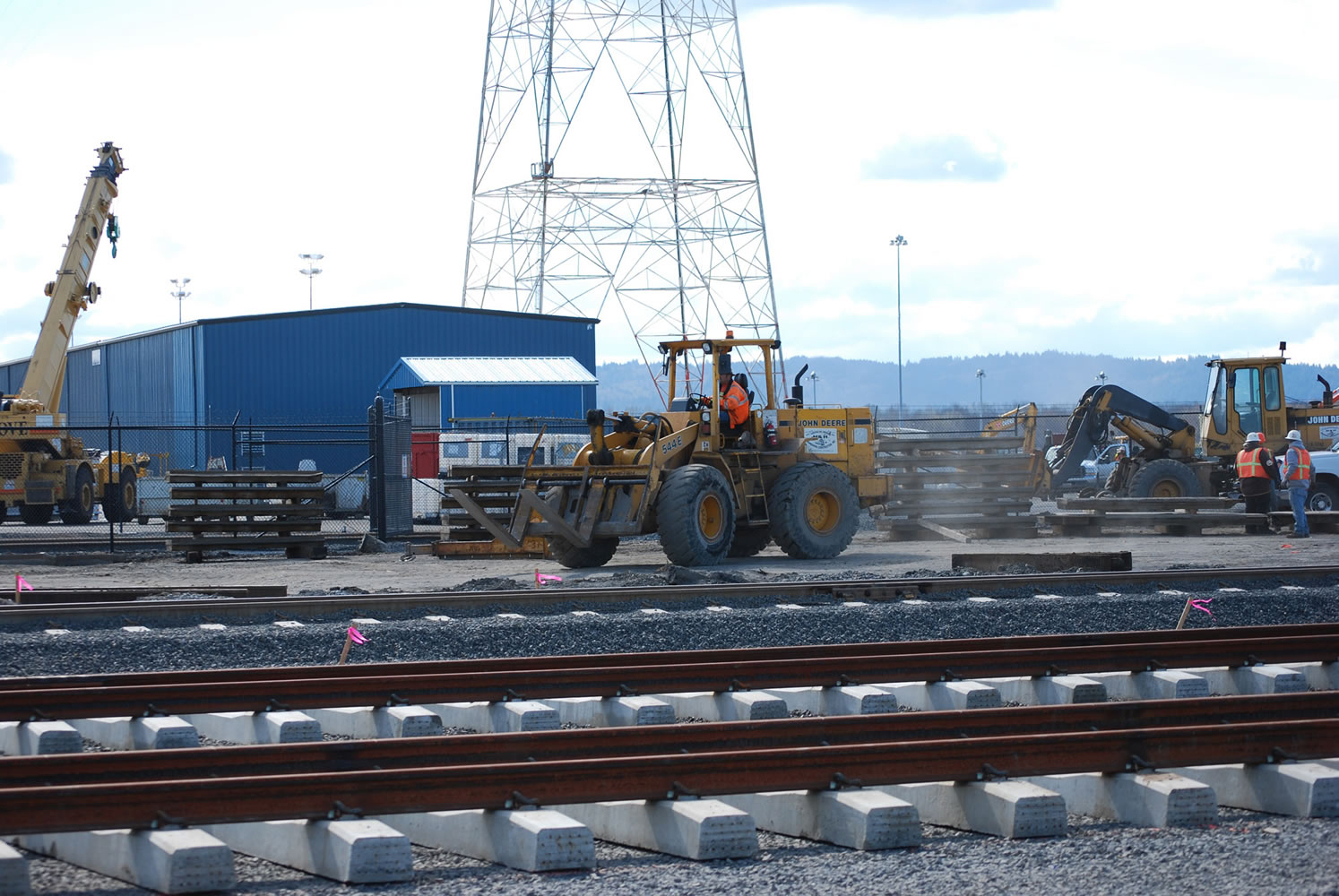The Port of Vancouver will head into 2013 with a slimmed-down spending plan but with expectations it will rope in more revenue to plow into infrastructure projects and jobs, thanks to a decision by its Board of Commissioners on Tuesday.
The port’s elected three-member Board of Commissioners unanimously approved a 2013 budget of $64.01 million, down roughly 20 percent, or about $16 million, from this year’s projected budget of $80.18 million. The board approved the budget without taking advantage of the port’s allowable 1 percent increase in its property tax levy.
The $16 million reduction comes entirely from the port’s capital projects plan, which is focused on building out its West Vancouver Freight Access project. The freight rail project aims to bolster the regional economy by generating thousands of jobs over several years.
The capital spending cut will delay only certain pieces of the long-planned $275 million freight rail project, which remains well under construction, on time and on budget, according to port officials.
The decision to put off some of the freight rail project reflects the port’s cautious approach to next year’s budget as it anticipates either flat or reduced revenue from a variety of sources, including grants and property taxes, and shipping and cargo-handling fees.
Holding down the port’s income is a weak global economy. That’s left the port with a different budget picture than in 2011, which was a “very good year,” with strong income from the port’s various cargo-handling activities, said Todd Coleman, the port’s executive director.
Nevertheless, Coleman said, the port remains “very profitable” and has some prospects heading into next year that could lead to new customers that generate additional revenue to build infrastructure and create jobs.
No 1% tax increase
In approving next year’s budget, port commissioners had the option, under state law, to increase property tax revenues by bumping up the port’s levy by 1 percent.
They unanimously decided against that, choosing instead to collect roughly the same amount in property tax revenue that the port expects to collect this year — nearly $10 million.
Ron Morrison, a Vancouver resident who was the only citizen to comment on the port’s budget Tuesday, urged commissioners to reduce the port’s property tax levy and to eventually eliminate it.
The public taxpayer has been “one of the heroes” in substantially contributing to the port’s growth, Morrison said. And, with that growth under way, it’s time for the port to begin extricating itself from the public subsidy.
Coleman thanked Morrison for his comments and his civic involvement, saying it keeps the port in tune with public perceptions and concerns. “We don’t take that lightly,” Coleman said.
The port’s 111-square-mile district encompasses 300,000 property taxpayers.
The port does not use its property tax levy to pay for day-to-day operations. Rather, property tax collections only go to environmental projects, such as cleaning up contaminated property, and to service the debt the port takes on for capital projects, such as rebuilding docks and expanding its capacity to handle cargo.
Property taxes make up roughly 16 percent of the port’s revenue pie. The rest comes from tenant rents, shipping fees and other non-tax revenue sources.
In a previous public hearing on Oct. 23, during which commissioners considered the 2013 preliminary budget, Commissioner Jerry Oliver said he wants to wean the port off property taxes.
It won’t be easy, Oliver said, since the port has contractual and capital project obligations supported by its property-tax revenue stream. But he said he’s “long been a proponent” of phasing out the port’s levy. “I want to see the port off the property tax rolls,” Oliver said.
‘A lucky break’
Although the port enters 2013 with a cautious spending plan, officials said, it also expects to have room to do some business deals. New customers may come on line, for example, and that would lead staff back to commissioners for an upward adjustment in the port’s income.
Coleman said the port continues to build out its freight rail project and that, with a $5.75 million infrastructure grant from the state in hand, it will upgrade its Centennial Industrial Park in hopes of luring new employers — and jobs — by 2014.
During Tuesday’s hearing, commissioners expressed optimism that 2013 will see new business deals that will, in turn, increase the port’s income and position it for further investments in infrastructure and jobs.
With just “a lucky break here or there,” Oliver said, the port will end up doing better on the revenue side.




